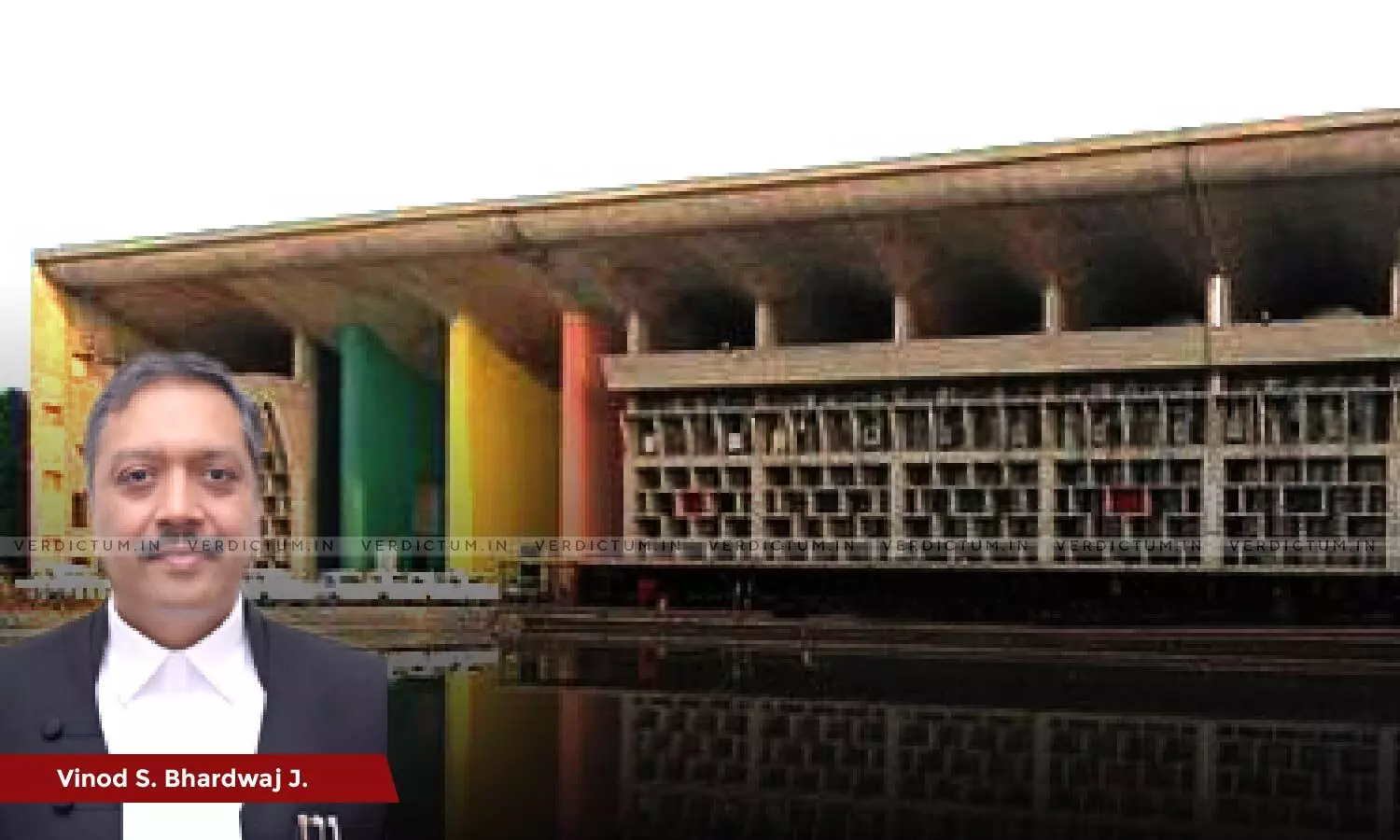
Writ Court Can Award Compensation To Person Aggrieved & Against Wrongdoer Due To Breach Of Public Duty: Punjab & Haryana HC
 |
|The Punjab and Haryana High Court observed that a writ court may award compensation to a person aggrieved and against the wrongdoer due to breach of public duty in addition to the independent right to claim compensation under the private law in a civil action based on tort.
The Court was deciding a writ petition against the order of the Chief Engineer/Operation, DHBVNL, Delhi by which the claim to grant compensation was rejected.
A Single Bench of Justice Vinod S. Bhardwaj observed, “It is thus evident from a perusal of the above that a writ Court may award compensation to a person aggrieved and against the wrongdoer, on account of breach of its public duty, in addition to the independent right of the aggrieved party to claim compensation under the private law in a civil action based on tort, by way of a suit instituted before a Court of competent jurisdiction. The award of compensation in the public law jurisdiction is thus without prejudice to any other action like suit for damages etc. which may be lawfully available to the victim or the heirs of the deceased qua the same matter. The quantum of compensation however would depend upon the peculiar facts of each case and no straight jacket formula can be evolved in that behalf.”
Advocate J.S. Sohal represented the petitioners while Addl. A.G. Vivek Chauhan represented the respondents.
In this case, the petitioners’ son aged 3 years, was playing on the terrace and all of a sudden, the heavy electricity line of 11000 KV passing abutting the roof of the petitioners, struck the child, leading to his immediate death. The matter was reported to the District Administration immediately and a postmortem was conducted. An FIR was also registered qua the incident for commission of offence under Sections 304 and 34 of the Indian Penal Code (IPC).
A representation was submitted by the petitioners to the Executive Engineer-City, OP-Division, DHBVN for grant of compensation. The claim of the petitioners was rejected and being aggrieved by this, they approached the High Court. They prayed to direct the respondents to pay the compensation to the tune of Rs. 25 lakhs along with an interest of 18% per annum.
The High Court in the above regard said, “This Court, further held, in the matter of “Jagir versus State of Haryana” bearing CWP-2648 of 2014 decided on 19.10.2015 that writ Court has the power and discretion to assess a fair and proper compensation, even in the absence of proper and impeccable pleadings or evidence. Further, this Court in the matter of “Purshotam Parkash and others versus Dakshin Haryana Bijli Vitran Nigam Ltd. and others” bearing CWP 15780 of 2016 decided on 03.09.2019 held that even though the principles laid down in claim cases under the Motor Vehicles Act are not to be strictly applied to compute quantum of compensation in electrocution cases, however, the same may be a guiding factor for awarding compensation.”
The Court noted that a writ court may, in such a circumstance, award compensation to a person aggrieved, where a person has suffered injuries/loss of life as a result of a danger brought around by the respondent (the distribution licensee being the respondent in the case). It added that the element of compensation is granted against the breach of public duty and is without prejudice to the rights of a person aggrieved to seek his remedies in a private law action against the violator before a Court of competent jurisdiction and even though, the principles of Motor Vehicles Act are not applicable per se, however, they may be regarded as guiding principles by a Court of competent jurisdiction to ascertain the compensation payable to a person aggrieved.
“A disputed question of fact would however emerge in the present case as to whether the injury in question was sustained purely as a result of fault of the petitioner or is attributable to the default of the respondent-distribution licensee. Even in an eventuality of contributory negligence, the petitioner would nonetheless be entitled to some compensation. Although a construction was allegedly being raised in violation of law, however, the respondent failed to take appropriate steps to stop construction raised in violation of law and chose to look the other way, thus contributing in the occurrence due to a prima facie lapse”, it further noted.
The Court said that the case be disposed of at this stage as it raises disputed questions of facts which cannot be ascertained in writ jurisdiction. However, in order to meet the financial hardship of the petitioners, the Court ordered that an interim compensation of Rs. 5 lakhs be awarded to the petitioners.
“They may, if so advised, approach the Court of competent jurisdiction for seeking just and appropriate compensation as per law. The Court of competent jurisdiction may thereupon determine the element of compensation on the basis of evidence led by the respective parties, and be guided by such principles including the guidelines/parameters prescribed under the Motors Vehicles Act, 1988 as it may deem fit and proper”, it also clarified.
Accordingly, the High Court disposed of the petition and directed that the interim compensation be disbursed within two months.
Cause Title- Deepak Sharma and Another v. State of Haryana and Others (Neutral Citation: 2024:PHHC:070834)
Appearance:
Petitioners: Advocates J.S. Sohal and Vipan Pal Yadav.
Respondents: Addl. A.G. Vivek Chauhan, Advocates R.D. Bawa, Randhir Bawa, and Samuel Gill.